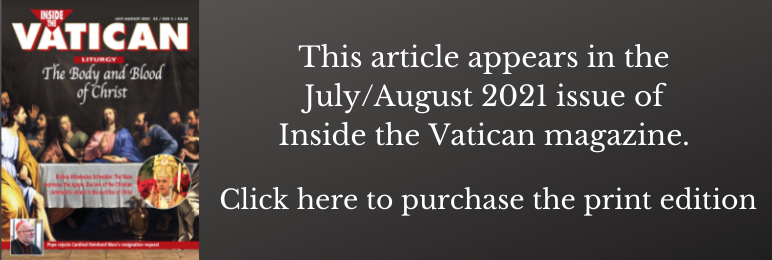Francis reportedly has set his sights on Summorum Pontificum, which liberalized use of the extraordinary rite of the Mass
By CNA/ITV staff
Pope Francis, in an address to the Italian Bishops upon the opening of their national assembly on May 24, told them that a “reform” of the motu proprio Summorum Pontificum, which under Pope Benedict XVI expanded permission for liberal use of the traditional Latin rite Mass, is in the offing.
Proponents of the traditional (or “extraordinary”) rite reacted with apprehension as Italian bishops at the gathering reported the Pope as saying he had reached the third draft of a text restricting celebration of the “extraordinary form” of the Latin rite Mass. The Pope reportedly explained the existence of Summorum Pontificum as primarily a concession to the traditionalist Pius X Society; however, this contention is dismissed by the motu proprio’s defenders, not only due to the sense of the text itself, but also because Pope Benedict, on page 189-190 of the book Last Testament: In His Own Words, (edited by Peter Seewald, 2017) says of the extraordinary rite, ”The Church preserved internal continuity with its past. What was once sacred did not suddenly become wrong. There is no other Mass now. They are different forms of the same rite.”
As to why Pope Francis would want to, essentially, return the Church to the “indult days” in a time when the faithful are attending the Latin rite Mass in ever greater numbers, no one seems to have a ready answer. There is some conjecture that the Latin Mass is perceived in the Vatican as a conduit for wider dissatisfaction with the entire post-Vatican “modernization” of the Church. As such, it may be considered a growing threat to unity – or to the preferred status quo – which must be squelched.
With Summorum Pontificum, Benedict XVI universally liberalized the celebration of the Mass according to the Missal of St. John XXIII.
In the letter to the bishops accompanying the motu proprio to all bishops in 2007, Benedict XVI established that “in the history of the liturgy there is growth and progress, but no rupture. What earlier generations held as sacred, remains sacred and great for us too, and it cannot be all of a sudden entirely forbidden or even considered harmful.”
He added, “I would like to draw attention to the fact that this Missal [that of 1962] was never juridically abrogated and, consequently, in principle, was always permitted.”
According to CNA’s source at the Congregation for the Divine Worship, the modifications to Summorum Pontificum would restore the need to get consent from the local bishop to celebrate it. The source said that this and other possible changes “have been requested by some local bishops, complaining about the need to better regulate the conditions for celebrating the Mass in the Ancient Rite.” He said the most common complaint is “sometimes, the group of people requesting the Vetus Ordo is tiny, and adding such celebration and keeping the church open for such small amount of people can be troublesome in dioceses with priests’ shortage.”
In 2020, the Congregation for the Doctrine of the Faith sent a nine-point questionnaire about Summorum Pontificum to the presidents of bishops’ conferences worldwide, since the Pope wished to be “informed about the current application” of the motu proprio.
But the document will not come for the Congregation for the Doctrine of the Faith but from Divine Worship. One of the proposals on the table is to require that priests who want to celebrate the Traditional Mass will have to establish a specific community at a specific church.
CNA’s source said that the first two drafts of the document ended up being “too tough” on the priests and faithful devoted to the Vetus Ordo. The third revision, according to the source, takes more into account “the possibility that restrictive regulations might be perceived as a step back in the path of the liturgical harmony desired by Benedict XVI.”
The source said completing the last draft and preparing it for publication is the task given the new undersecretary of the congregation, Msgr. Aurelio García Masías. García will be consecrated a bishop next month, a dignity not typically given to undersecretaries. According to CNA’s source, this unusual decision might mean that Pope Francis is inclined to move the competencies on communities attached to the Traditional Latin Mass from the CDF to Divine Worship.






Facebook Comments